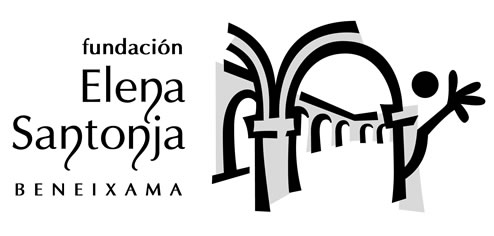
Foundation Elena Santonja
Address:
Office: C/ Cardenal Payá, 31
Hostel: C/. Constitución, 2 – 03460 Beneixama (Alicante)
Phone: 965 82 21 08
Página web:
FACILITIES
- Capacity for 100 people in two pavilions rooms with bunk beds from 2 people.
- Bathrooms in each pavilion
- Facilities adapted for the disabled (six places in two rooms).
- Industrial kitchen equipped.
- Dining room with capacity for 200 people.
- Multi-purpose classrooms
- Hot water.
- Central heating.
- Accommodation services, half board or full board.
- Patio of 7000m2 with poliderpotiva track and playground for camping and any kind of activities.
- Cloister of about 300m2 that can be covered in summer to perform different activities in the shade.
- Other services to be specified.
HISTORICAL REVIEW
On March 19, 1878, the beginning of activities of the Carmelite Sisters of Charity in Beneixama took place and for many years they were exercising their charitable action in the town, especially all the girls who were educated with care and Christian values , within the possibilities that were then, in such a way that they are remembered, passed the time, with much love and respect for the great good they did to so many people and for the Christian bed that left their education. After 91 years, in September 1969, the sisters, for lack of vocations, had to leave the “convent” and on October 13, 1969, the USE of the building was transferred to the Ministry of Education and Science, and works were carried out in it. to adapt it to the new circumstances and at the beginning of the 1971/2 course, the activities of the Home School begin. Vicente Valls and the City Council of the moment take part in this process, with which this new journey of the Foundation is called “Vicente Valls Home School” the building and patio are transferred, that is, all the real estate that the Foundation owned to the ministry of Education and Science to establish in them a “Home School” for children, with boarding school regime, and during school time they could go to the classes of the Village College, school, which on the other hand, by increasing the ratio of children in a hundred, had to use the building of the foundation to enable three classrooms and there to teach primary school. It was a great good for the town, since with this measure it was avoided that the children of the town, not enough at that time to maintain the school, had to travel to Biar to receive their classes with the consequent damage for all the families. This situation continues for 33 years.
On April 22, 2004, the Board of Trustees of the Foundation returned the right to the use that the Consellería de Cultura had previously had.
The board, reconstituted on October 20, 1998 with the adaptation of the new statutes to current legislation, was formed by José Limorti Guill, as president and two others as members in public deed No. 493 by the notary of Biar D. Álvaro Toro Ariza Said Board of Trustees waives the use of part of Consellería and begins to take over the building.
It is with a new building that can accommodate more than 100 children, with their bunk beds, many mattresses, bedding. Also with a dining room in very good condition with capacity for more than 200 people and dining utensils, some tables and chairs for children, many of them quite deteriorated.
It is located with a fairly equipped industrial kitchen and many other kitchen elements so you can exercise your function.
Two exterior bathrooms to be used from the cloister in good condition.
The old building, especially the upper floor, however is very deteriorated as well as the attic, full of leaks because the roof had not been restored for a long time.
The board of trustees considered the way to make money and, at the beginning, with the help of the parish and volunteering, the deteriorated began to be repaired.
In a second moment the building for captaincies, christenings, first communions, camps, coexistence, cultural weeks of housewives, etc. began to be rented. With this, money is collected to update the building.
At this time, June 2009, the building has been legalized as a public space, with all the requirements of the corresponding legal regulations to open it as a Rural Hostel.
It has taken a lot of time, effort and money to adapt to the current legislation so that the building is considered as public competition and the habitability license is granted.
Among the adaptation works, the following stand out:
- Construction of two rooms for the disabled, with the corresponding access ramps and the bathroom adapted for wheelchairs.
- A battery of 15 taps for the camps and their protection with a roof suitable for it that also protects the entrance of the courtyard to the building.
- The adaptation of the kitchen with elimination of marble work tables by others of stainless steel, for a children’s dining room in which the children have a regular and continuous service, not sporadic as up to this moment.
- Electrical installation of the entire building
Location on the map
